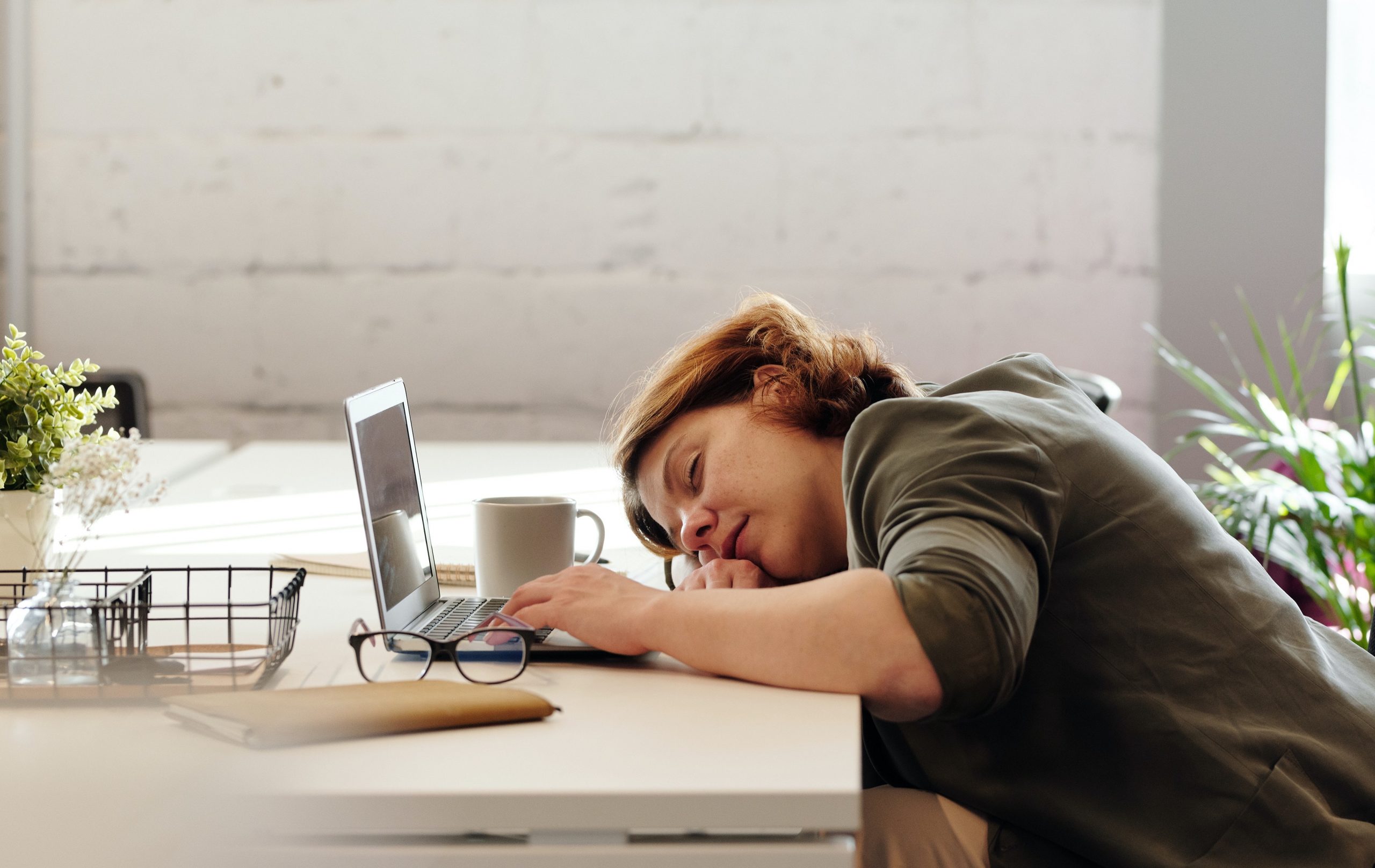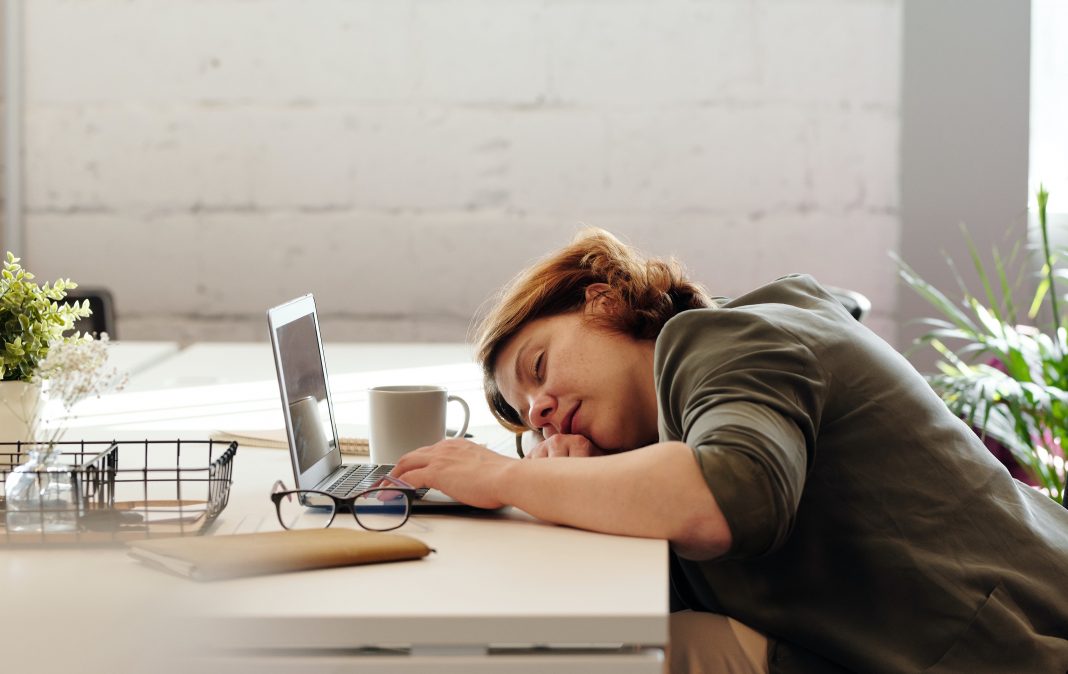It’s normal to need rest after a busy week at work or a big project.
But being tired all the time, even when you’ve slept a full eight hours or more?
That kind of fatigue makes it hard to get anything done, and can lead to feelings of hopelessness.
A lack of energy or motivation probably isn’t your fault, though.
Many times, the true cause lies just outside of our awareness. The solution to ongoing feelings of fatigue is usually to expand our knowledge.
In this article, you’ll learn the most common reasons people feel tired and drained, with helpful solutions and natural energy boosters that work for each situation.
The Top 5 Causes of Fatigue (And How to Solve Them)
1. Excessive Chronic Stress
A high level of stress can tip your body’s overall balance in an unhealthy direction, especially over time.
One of the main hormones behind your body’s stress response is cortisol, aptly called the “stress hormone.” Chronic stress results in unbalanced cortisol levels, which may lead to fatigue. (1)
And research shows that drinking coffee raises cortisol. (2)
Studies suggest that unlike coffee, tea actually helps to lower cortisol, meaning it may help reverse the cycle of chronic stress. (3) And l-theanine in tea also helps moderate the harsh stimulant effects of caffeine. (4)
To be resilient against stress, you also need downtime and restorative activities in your life that allow you to unwind and relax. (5)
You might find it helpful to inventory every part of your life, looking for areas where you can temporarily reduce your obligations and commitments.
Lastly, you may be able to speed recovery from stress-induced fatigue with revitalizing practices like naps, time in nature, yoga, or breathwork.
2. A Poor Diet and Nutrient Deficiencies
There are plenty of reasons to eat a healthy diet, particularly if your energy levels are flagging.
First of all, our bodies require sufficient micronutrients to survive and thrive.
Eating plenty of fresh, whole foods (local and organic if possible) is the best way to ensure you don’t have deficiencies. Not sure what a balanced diet looks like? Try using the Blue Zone diet as a template.
Another reason a poor diet saps your energy levels relates to sugar and processed carb intake.
Most of us have experienced “sugar crashes,” where high blood sugar after a meal suddenly dips, causing feelings of drowsiness.
And people who regularly eat too much sugar or processed food are at a higher risk of insulin resistance, a condition where your body becomes intolerant to the effects of the sugar storage hormone insulin. (6)
Insulin resistance brings lethargy, weight gain, and a higher risk of chronic health concerns. (7)
Lower your risk of insulin resistance issues by eating natural, healthy foods and exercising regularly. (8)
Finally, the integrity of your gut microbiome depends on your diet. Not surprisingly, an unbalanced gut bacteria population may contribute to fatigue. (9)
Eat plenty of natural fiber and fermented and probiotic foods while avoiding preservatives and other artificial additives to ensure you maintain a healthy microbiome.

3. Disrupted Sleep and Circadian Rhythms
It’s no secret that a good night’s sleep helps guard against fatigue. Try these simple tips to ensure you get adequate rest every night:
- Avoid bright light, screens, and social media for a few hours before bed: Lights from artificial sources, including electronics, reduce your body’s melatonin production and release. (10) Build your nighttime routine around relaxing in dim light, without devices, to achieve higher levels of this all-important “sleep hormone.”
- No nighttime eating: Evidence suggests that eating 30-60 minutes before bed adversely affects sleep quality. (11) We recommend cutting off food intake a few hours earlier to be safe.
- Remember, sleep cycles are 90 minutes long (on average): Most people sleep in multiples of 90 minutes. (12) Waking up part way through a sleep cycle results in grogginess, so try to plan your sleep schedule and alarm clock settings to allow for complete sleep cycles during the night. Better yet, go to bed early and wake up without an alarm whenever possible.
Beyond your nightly repose, you can also fight sleepiness by maintaining healthy circadian rhythms.
Circadian rhythms are 24-hour cycles that tell your body when to feel awake and when to go to sleep, and they affect most of the cells in your body.
If you’re not feeling alert during the day, you can help support your circadian rhythm by getting more sun exposure (especially early in the morning), being physically active during the day, and maintaining consistent sleep and wake times. (13)

4. Mitochondrial Health
Mitochondria are the “powerhouses of the cells” that you may remember from biology class.
Despite the fact that they’re tiny and rarely discussed, your mitochondria play an outsized role in your overall health, and especially in issues like fatigue and tiredness. (14)
The tips we’ve already discussed–stress management, healthy diet, and maintaining high-quality sleep and healthy circadian rhythms–are all good ways to keep your mitochondria in shape. (15)(16)(17)(18)
Another way to support the number of healthy mitochondria in your body is through intermittent fasting.
Fasting can help your body recycle unhealthy or aged mitochondria, which increases the overall health of your mitochondria population, encouraging better energy production. (19)
You may also be able to boost your mitochondrial health and reduce fatigue by breathing cleaner air.
Stale or polluted air can damage your mitochondria and lead to fatigue (as well as other health issues), so consider opening a window whenever possible, or running an air filter or purifier if you live in an urban area. (20)
5. Possible Medical Conditions
If your fatigue is severe, or if you can’t seem to find relief with do-it-yourself solutions, there might be medical reasons behind your tiredness.
Nearly any health problem can result in fatigue if left untreated, but here are a few of the more common ones associated with a lack of energy:
- Obstructive sleep apnea: In addition to disrupting your nightly sleep cycles, sleep apnea deprives cells of oxygen, worsening fatigue. (21)
- Depression or other mental health issues: Not everyone agrees that depression is a medical issue, but it’s a fact that being depressed can cause tiredness. (22) Treating depression, if you have it, may be the perfect solution to your fatigue.
- Iron deficiency anemia: For the most part, women suffer from this form of anemia. (23) If you’re anemic, you may be able to reverse your tiredness by taking iron supplements. (23)
- Hypothyroidism (underactive thyroid): When your body doesn’t produce enough thyroid hormone on its own, you may feel lethargic all the time. (24)
If you suspect a medical condition is causing your fatigue, see a physician or a specialist you trust. In many cases, a sleep study or simple blood test is all it takes to diagnose the cause.
How Do I Stop Being So Tired?
Your energy levels affect your productivity and quality of life. And equally importantly, they’re one of the best indicators of your overall health.
If you feel fatigued and run down, don’t beat yourself up. Instead, make a plan and take steps to boost your energy levels. Each section above includes pointers for making adjustments to help yourself out. Pick a few, implement them for 1-2 weeks and see how you feel!
And if you can’t seem to solve your tiredness issues by yourself, there’s no shame in seeking professional guidance to get to the root of the problem.







